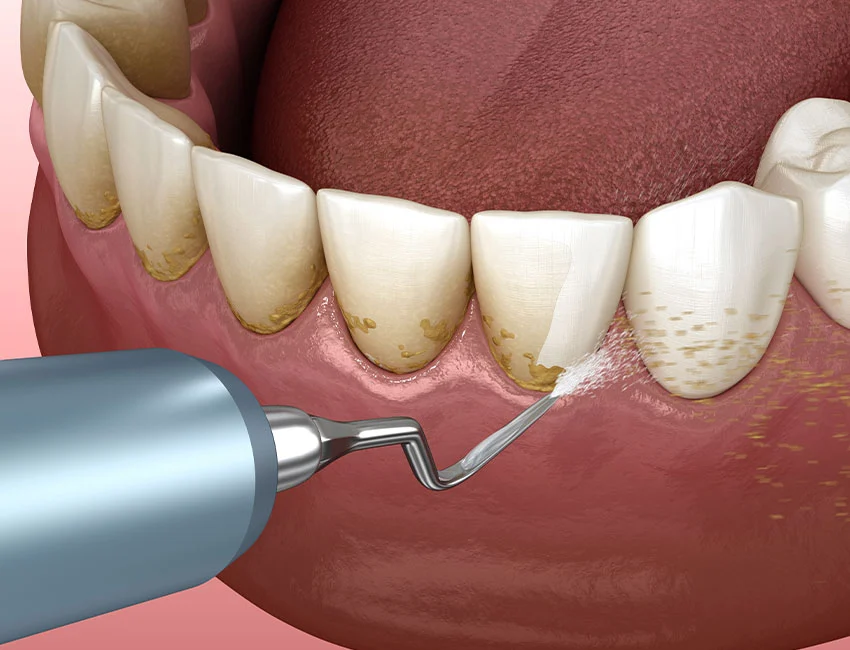Understanding the science behind teeth cleaning and oral health is crucial for maintaining a bright smile and preventing serious dental issues. Teeth Cleaning is more than just a cosmetic procedure; it’s a fundamental part of oral hygiene that plays a significant role in overall health. The process involves removing plaque, tartar, and bacteria, all of which can have long-term effects on your teeth and gums if left untreated.
The Role of Plaque in Oral Health:
Plaque is a sticky, colorless film of bacteria that forms on your teeth throughout the day. If not removed regularly, it can lead to various oral health issues.
-
Bacterial growth: Plaque harbors bacteria that feed on sugars from food and drink, leading to the production of acids that can erode tooth enamel.
-
Gum inflammation: Plaque buildup along the gumline can cause gums to become inflamed, a condition known as gingivitis.
-
Cavity formation: The acids produced by plaque bacteria can demineralize tooth enamel, leading to cavities and tooth decay.
Teeth cleaning is essential to remove plaque and prevent these harmful effects from occurring.
Tartar and Its Impact on Oral Health:
Tartar, or calculus, forms when plaque hardens on the teeth over time. Unlike plaque, tartar cannot be removed by brushing alone and requires professional cleaning.
-
Tartar buildup: Tartar provides a rough surface for more plaque to cling to, making it harder to clean your teeth and increasing the risk of further dental issues.
-
Gum disease: If tartar is not removed, it can irritate the gums, leading to gingivitis, and eventually, more severe gum diseases like periodontitis.
-
Tooth loss: In advanced cases, untreated tartar buildup can lead to bone loss and tooth mobility, resulting in tooth loss.
Regular cleanings help prevent tartar buildup and maintain a healthy mouth.
The Importance of Removing Bacteria:
Bacteria thrive in areas where plaque and tartar accumulate, and this can have far-reaching effects on your oral health.
-
Oral infections: Bacteria in the mouth can lead to infections, including abscesses or severe gum infections that may require medical intervention.
-
Bad breath: The bacteria in plaque and tartar can also contribute to persistent bad breath (halitosis).
-
Link to overall health: Poor oral hygiene, including unaddressed bacterial growth, has been linked to serious health issues such as heart disease, diabetes, and respiratory infections.
Professional teeth cleaning removes these bacteria, reducing the risk of infections and other systemic health problems.
The Process of Teeth Cleaning:
Teeth cleaning is typically performed by a dental hygienist and involves a series of steps designed to thoroughly clean the teeth and gums.
-
Scaling: The first step is scaling, which involves using manual or ultrasonic tools to remove plaque and tartar from the surfaces of the teeth and below the gumline.
-
Polishing: After scaling, the teeth are polished using a special paste to smooth the tooth surfaces and remove any remaining plaque.
-
Fluoride treatment: In some cases, a fluoride treatment is applied after cleaning to help remineralize tooth enamel and protect against cavities.
These steps work together to ensure a comprehensive clean and help maintain optimal oral health.
The Long-Term Benefits of Teeth Cleaning:
The benefits of professional teeth cleaning extend beyond a polished smile. Regular cleanings can significantly improve your oral health and prevent the development of more serious conditions.
-
Prevention of gum disease: By removing plaque and tartar, teeth cleaning helps prevent gum disease, which can lead to tooth loss if left untreated.
-
Reduced risk of cavities: Cleanings eliminate bacteria and plaque, reducing the risk of cavities and tooth decay.
-
Improved overall health: Maintaining good oral hygiene through regular cleanings can improve your overall health by preventing conditions linked to poor oral health, such as cardiovascular disease and diabetes.
Incorporating regular professional cleanings into your routine is essential for maintaining long-term oral and overall health.
How to Maintain Oral Health Between Cleanings?
While professional Teeth Cleaning Treatment are essential, maintaining good oral health between visits is equally important.
-
Brush twice daily: Use a fluoride toothpaste and a soft-bristled toothbrush to brush your teeth thoroughly, focusing on all surfaces.
-
Floss daily: Flossing helps remove plaque and food particles from between your teeth, areas that your toothbrush can’t reach.
-
Limit sugary foods: Reducing your intake of sugary foods and drinks helps prevent plaque buildup and reduces the risk of cavities.
-
Use mouthwash: Mouthwash can help kill bacteria and keep your breath fresh, in addition to providing extra protection against plaque.
Maintaining a consistent oral hygiene routine at home will complement the benefits of professional teeth cleaning and ensure your mouth stays healthy between appointments.







